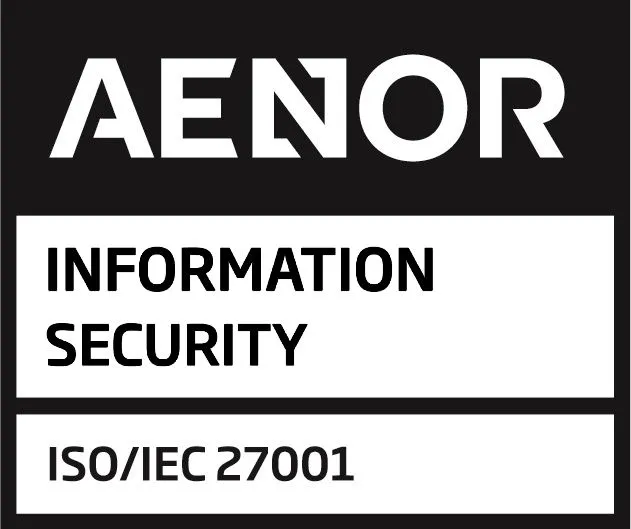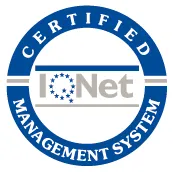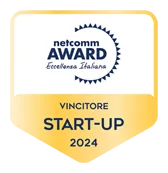
Nowadays, almost every company faces the same challenge: how to centralize information, improve collaboration, and at the same time keep employees connected and motivated.
Table of Contents
Among the many options available, SharePoint is probably the best known. However, it’s not the only one. The market offers a wide variety of tools: from SaaS intranets designed for internal communication to collaboration platforms or open-source solutions.The question is not so much “which is the best”, but rather which tool best fits your company’s needs. Let’s go over the most common options to help you decide.
SharePoint: The corporate standard
Microsoft SharePoint has become one of the most widely used solutions in large organizations. Its strength lies in document management and integration with the Microsoft 365 suite (Outlook, Teams, OneDrive, etc.).
Key strengths:
- Powerful as a document repository and workflow manager.
- High level of security and permission control.
- Flexible thanks to customization options.
Common limitations:
- Requires IT teams for configurations and maintenance.
- Can be complex for non-technical employees.
- Adoption is often uneven: some departments use it intensively, others barely touch it.
Other intranet and communication tools
Beyond SharePoint, there are other solutions with different approaches.
SaaS Intranets for Internal Communication
Platforms like Vip Connect are specifically designed for internal communication and employee engagement. Their focus is on being mobile-first, easy to use, and packed with features that encourage participation: news, surveys, recognition, mandatory notifications, etc. They also include analytics that let you measure which messages really reach employees.
Comparative: SharePoint vs Vip Connect
SharePoint and Vip Connect are two powerful platforms designed to improve communication, collaboration, and information management within companies—but each with unique approaches and features.
SharePoint, widely recognized and used, focuses on document management, corporate intranets, and team collaboration. Vip Connect, meanwhile, positions itself as a more versatile and mobile-first platform, ideal for companies with frontline or deskless employees, integrating multiple functions into a single tool.
| Aspect | SharePoint | Vip Connect |
| Main focus | Document management, intranet, team collaboration. | Internal communication, corporate social network, information & events management. |
| Mobile usability | Mobile app available, but originally web-centric. | Mobile-first, ideal for frontline and deskless employees. |
| Collaboration | Extensive tools for co-editing, workflows, and document management. | Posts, publications, scheduled events, contests, and suggestion box. |
| Content management | Advanced document libraries, lists, and versioning. | Structured content with posts, documents, events. AI support for translation and content creation. |
| Customization | Highly customizable through development and configuration. | Segment users and content by employee type and parameters; “view as segmented user” option. |
| Integrations | Integrated into Microsoft 365 ecosystem. | Integrates with multiple external platforms. (See more) |
| Internal communication | Tools for announcements, news, and corporate content. | Internal social network with comments, surveys, automated newsletters, and dynamic alerts. |
| Event & activity management | Ability to create calendars and events. | Publish events and activities with automatic registration, waitlists, reminders, etc. |
| Ease of use for admins | Requires technical knowledge for advanced configuration. | Intuitive interface with option to view the platform as any segmented user. |
| Scalability | Highly scalable for large organizations. | Scalable for mid-sized and large companies, with focus on communication and engagement. |
| Feature availability | Robust backend with many features in development. | Wide variety of functions in one evolving platform. |
All in one place with a versatile and mobile-first platform!
Employee Experience Platforms
Solutions like Staffbase or LumApps combine internal communication with features for corporate culture and personalization. They are popular among companies aiming to strengthen a sense of belonging.
Collaboration Tools
Slack, Microsoft Teams, or Google Chat are not intranets in the strict sense, but they are widely used as quick communication channels. They work very well for dynamic teams, although they are usually complemented with another tool that centralizes content and news.
Open-Source or Customized Solutions
Some organizations choose to develop their intranet using WordPress, Drupal, or other platforms. They offer total freedom, but also require a dedicated technical team for development, maintenance, and security.
Most common questions about SharePoint and its alternatives
What is SharePoint used for, and how does it benefit organizations?
SharePoint is a Microsoft platform designed for document management, collaboration, and intranet portals. It helps organizations centralize files, improve teamwork, automate workflows, and integrate seamlessly with Microsoft 365 apps like Teams and Outlook.
What are the main challenges or limitations of using SharePoint?
Some common challenges include complex setup, a steep learning curve, and high customization costs. Users often report that the interface can feel outdated, and smaller companies may find it too advanced for their needs compared to simpler tools.
Which alternatives to SharePoint are most popular for document management and collaboration?
Popular alternatives include Google Workspace (Docs, Drive, and Sites), Confluence by Atlassian, Monday.com, Box, Dropbox Business, and Vip Connect by Vip District. Each offers different strengths in ease of use, integrations, and scalability.
How do platforms like Google Workspace, Vip District, Monday.com, or Confluence compare to SharePoint?
Google Workspace is often chosen for its simplicity and real-time collaboration. Monday.com stands out for project and task management with an intuitive interface. Confluence is widely used for knowledge sharing and team documentation. SharePoint, on the other hand, excels in enterprise-level customization, security, and Microsoft ecosystem integration. Vip Connect by Vip District is often used as a powerful internal communication tool.
What factors should companies consider when choosing between SharePoint and its alternatives?
Key factors include company size, budget, technical expertise, security needs, and integration with existing tools. For enterprises heavily invested in Microsoft 365, SharePoint may be the best choice. For smaller or more agile teams, alternatives like Google Workspace or Monday.com may be more cost-effective and user-friendly.

Checklist to choose the right tool?
Before deciding, it’s important to be clear on your goals. Here are some criteria you can use as a checklist:
- Main goal → Do you need mostly document management, internal communication, or real-time collaboration?
- Ease of use → How intuitive should it be for non-technical employees?
- Implementation & resources → Do you have an IT team, or would you prefer something that works “out of the box”?
- Mobile-first → Do you have employees without a fixed desk, like in retail, factories, or logistics?
- Analytics → Do you want to measure which messages are read and the impact they generate?
- Budget → Do you prefer a high upfront investment with more control (e.g., SharePoint) or a flexible SaaS model?
Scenarios by company type
- Large corporations with strong IT departments → SharePoint is often the natural choice for companies already using Microsoft systems, thanks to its integration and customization capacity.
- Mid-sized companies with distributed teams → A SaaS intranet (Vip Connect, Staffbase, LumApps) can be faster to deploy and achieve higher employee adoption.
- Startups and scaleups → Usually start with Slack or Teams, then add a lightweight SaaS intranet for internal communication.
- Organizations with advanced digital culture → Combine multiple solutions: SharePoint for documents, Teams for collaboration, and a SaaS intranet for communication and engagement.
There’s no universally “best” tool. The key is to define your objectives: if you mainly need document workflows, SharePoint may be a perfect fit. But if your priority is reaching all employees, improving communication, and strengthening company culture, a SaaS intranet like Vip Connect can be the ideal complement.
New to Vip District? Contact us and find out what our platform has to offer!








